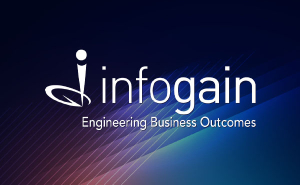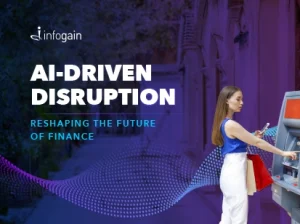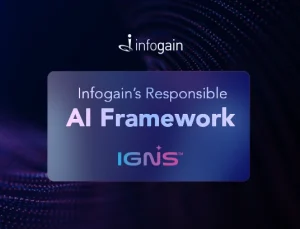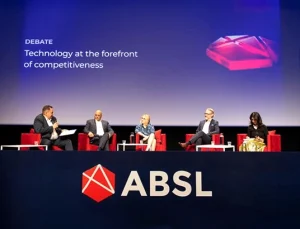Leveraging cloud native components such as AI/ML, and data and analytics services for improving experience
- Posted on : May 18, 2021
-
- Industry : Travel and Hospitality
- Type: Blog
 Download Now
Download Now
Airlines today have ecosystems that depend on many systems of record, from booking engines to baggage transportation, loyalty programs, flight ops and more. Airlines that want to improve the customer service experience can leverage cloud native components including AI/ML, and data and analytics services on a cloud native platform like Google.
The data stored by airlines is complex, and services often do not adapt to changes due to rigid schemas and longer implementation cycles within analytics and operations systems. In addition, building these systems on-premise does not allow for scaling when there is a need to add new domains and features such as personalization, baggage sorting, etc.
In addition, airlines seek to personalize and improve customer experience by proactively acknowledging service changes and disruptions by interacting with the customer on their preferred communication channel (e.g., mobile, email). To accomplish this, multiple providers are required to build separate operational email systems, notification systems, and campaign and marketing systems capable of delivering a personalized customer experience.
Airlines looking to modernize those systems can do so by implementing a data platform architecture that will help relieve and eventually replace these on-premises data platform loads. In return, they will be rewarded with cost savings and an agile environment. Flight, passenger, and loyalty are examples of a few key areas where we have a need to separate storage and compute and pave the way for Data as a Service (DaaS) platforms.
The following reference architecture diagram addresses the challenges of replacing existing data systems with managed services and integrating multiple Google Cloud services like artificial intelligence and machine learning. The use of managed databases, serverless and fully managed services for microservices and events, provides elasticity and resilience. These cloud platforms thereby enable airlines to avoid expensive on-premise operational databases, service-oriented architecture infrastructure, and message-oriented middleware systems.
Reference Architecture Overview
The following diagram depicts Infogain's reference architecture for airlines operations:

Reference Architecture Features
- The batch process allows airline customers to extend capabilities by migrating additional domains and system records like shopping data, baggage sortation, and baggage reconciliation.
- The stream process creates message workflows that reduce customer pain points such as automatic baggage lost notifications, baggage tracking, surveys, service interruption-based interactions and baggage reconciliation.
- Use BigQuery ML to create segmentations, target lists, and personalized offers by analyzing the data in data lakes like Google BigQuery and Big Query ML for machine learning.
- Customer event processing supports new AI/ML models for customer lifetime value, segmentation, and specialized offers by using machine learning capabilities on raw and curated data readily available in the data lakes.
- Using analytics on Google cloud service such as data prep/DataLab, allow airline customers to fine-tune survey questions and interactions.
- Use Google Firebase to reliably deliver operational and notification communications across email, SMS, voice, and push to apps by considering customer preferences and systematically storing all interactions along with delivery status for tracking.
- Cloud functions trigger and refine the offers with delivery to customers based on their preferences.
- MDM improves the effectiveness of personalization by using master data management (MDM) integration.
In conclusion we can say that this data platform reference architecture can be used as the foundation layer for airline operations. It can be used to build features like customer lifetime value, segmentation, offers and personalization with artificial intelligence and machine learning services.








